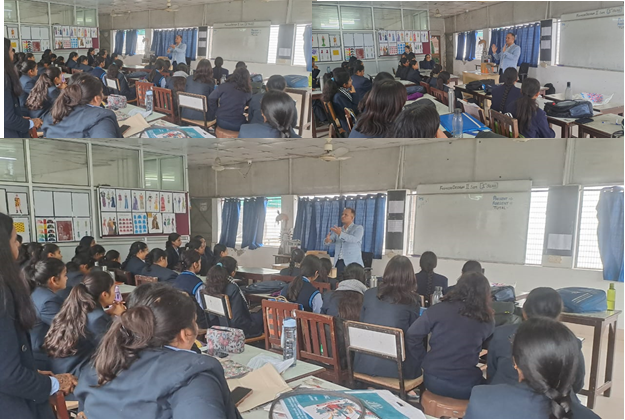EXPERT TALK ON TECHNOLOGY READINESS LEVEL (TRL) 27 FEBRUARY 2025
EXPERT TALK ON TECHNOLOGY READINESS LEVEL (TRL) 27 FEBRUARY 2025
The Design Departments of B S Negi MPPS organized an expert talk on the process of innovation development, Technology Readiness Level (TRL), commercialization of lab technologies, and technology transfer, with a special focus on design courses on 27th Feb. 2025. This session which was taken by Dr. Ankur Dumka provided valuable insights into how design-driven innovations can progress from conceptualization to market-ready solutions.
Dr. Ankur Dumka is working as an associate professor with additional responsibilities as Dean (academic and research) and Head of Department, Computer Science and Engineering, Women Institute of Technology, Dehradun. He has more than 14 years of experience and contributed 140 research papers, 7 authored books, 15 book chapters, 8 patents granted under his name and 7 patents published. He also carries one R&D project of more than 10 lakhs.
The expert, Dr.Ankur Dumka covered crucial aspects related to innovation in design. He talked about Creative concepts in product design, fashion, textiles, and interiors which evolves from brainstorming to functional prototypes, using sketches, digital models, and working prototypes. He also shared about Human-Centered Design (HCD) which ensures products meet user needs, emerging technologies like AI, 3D printing, smart materials, and sustainability drive innovation.
He also touched on The Technology Readiness Level (TRL) framework which tracks progression from basic research (TRL 1) to market-ready products (TRL 9), Materials, wearables, and smart textiles move from lab to market through successful innovation stages
Lastly, he shared that Commercializing design solutions involves prototyping, testing, and scaling. Start-ups thrive with strong business models, while incubators, venture capital, and industry partnerships aid commercialization. Government grants support design entrepreneurship. Patents and intellectual property rights protect innovations, and collaboration between academia and industry helps transfer research into products. Scaling experimental designs faces both technical and commercial challenges.









